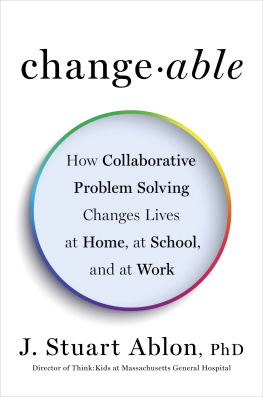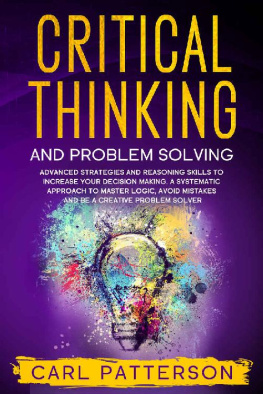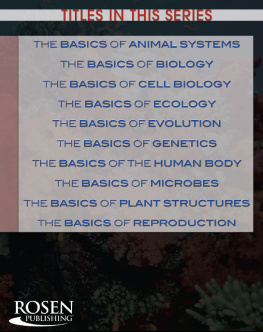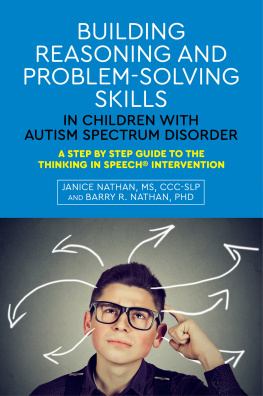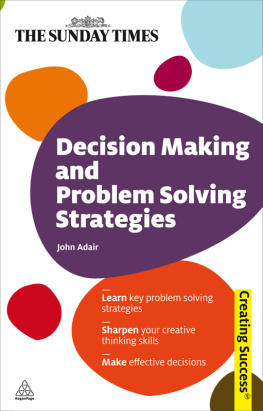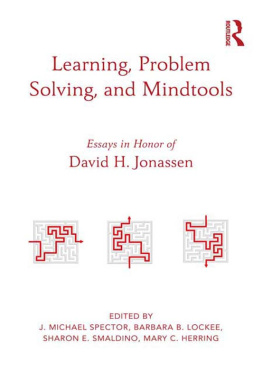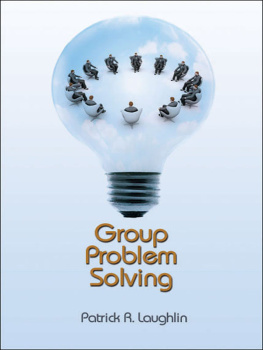Advance Praise for Changeable
Reaching our full potential requires opening ourselves up to changeeven when its uncomfortable and scary, or seems impossible. The insights in this engaging book shed light on the real obstacles to change, and how we can overcome themin ourselves and others. An empowering read.
Susan David, PhD, bestselling author of Emotional Agility
Changeable is a great book. Dr. Ablon addresses the most challenging aspect of human interactionhow to engage with another person to effectively help them change. This is the key task of a parent, coach, teacher, supervisor, therapistjust about any human-to-human interaction involves change. The clear and compelling way that Dr. Ablon outlines the Collaborative Problem Solving process will be a revelation. Using the principles outlined in Changeable will shift the way you understand and interact with othersand the impact may just change your life.
Bruce D. Perry, MD, PhD, senior fellow, The ChildTrauma Academy, and bestselling author of The Boy Who Was Raised as a Dog
Each of us has the potential to learn new skills, regardless of how weve been labeled or judged by others. In this empowering book, Stuart Ablon shows how helping others work past their struggles to learn and grow can yield powerful results.
Scott Barry Kaufman, PhD, author of Twice Exceptional and Ungifted, and coauthor of Wired to Create
Weve trained thousands of our staff in states across the country to use the Collaborative Problem Solving model as a way to reach children with the most severe emotional and behavioral problemschildren who were simply unreachable before. Its a clinical approach and parenting model, but weve also found the ideas and proven strategies of CPS can be applied anywhere there is a need to develop and grow people in a way that enhances skills. CPS has become an important staff development tool in addition to serving as one of our primary clinical approaches for helping thousands of children and families each year.
Patrick W. Lawler, CEO of Youth Villages
Dr. Ablon has provided us with a clear and compelling roadmap of how to employ the Collaborative Problem Solving method, which will help parents, teachers, and clinicians to work with, not against, our children in crafting individualized strategies to encourage positive emotional and cognitive development while decreasing disruptive behavior. Thank you, Dr. Ablon, for this highly valuable contribution!
Jess P. Shatkin, MD, MPH, professor of child and adolescent psychiatry and pediatrics, NYU School of Medicine, and author of Born to Be Wild
Changeable is a hopeful, accessible, and essential book about the infinite power of human beings to change. I wish I could put this book in the hands of everyone who is struggling with how to help someone with their behavior.
Vanessa Diffenbaugh, author of The Language of Flowers
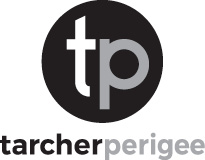
An imprint of Penguin Random House LLC
375 Hudson Street
New York, New York 10014
Copyright 2018 by J. Stuart Ablon
Penguin supports copyright. Copyright fuels creativity, encourages diverse voices, promotes free speech, and creates a vibrant culture. Thank you for buying an authorized edition of this book and for complying with copyright laws by not reproducing, scanning, or distributing any part of it in any form without permission. You are supporting writers and allowing Penguin to continue to publish books for every reader.
Tarcher and Perigee are registered trademarks, and the colophon is a trademark of Penguin Random House LLC.
Library of Congress Cataloging-in-Publication Data
Names: Ablon, J. Stuart, author.
Title: Changeable : how collaborative problem solving changes lives at home, at school, and at work / J. Stuart Ablon, PhD.
Description: New York : TarcherPerigee, [2018] | Includes bibliographical references and index.
Identifiers: LCCN 2017058351 (print) | LCCN 2017059929 (ebook) | ISBN 9781101993132 | ISBN 9780143129011 (alk. paper)
Subjects: LCSH: Behavior modification. | Change (Psychology)
Classification: LCC BF637.B4 (ebook) | LCC BF637.B4 A25 2018 (print) | DDC 153.8/5dc23
LC record available at https://lccn.loc.gov/2017058351
While the author has made every effort to provide accurate telephone numbers, Internet addresses, and other contact information at the time of publication, neither the publisher nor the author assumes any responsibility for errors or for changes that occur after publication. Further, the publisher does not have any control over and does not assume any responsibility for author or third-party Web sites or their content.
Some names and identifying characteristics have been changed to protect the privacy of the individuals involved.
Version_1
To my pride and joy: Paige, Carter, and Jack
Authors Note
I have changed the names and other identifying details of many of the people represented in the stories in this book so as to protect their identities. The stories are real.
Contents
Introduction
Youre in a psychiatric hospital, face-to-face with a seriously ill patient who wont comply with the rules and who hasnt been taking his meds. His cheeks are turning red, his voice is risinghes getting agitated. What do you do? This patient is delusional. He hears voices and thinks people are out to get him. He has a history of violence, having injured or killed people. Hes physically bigger than you. How do you react?
Staff at the Oregon State Hospital in Salem, Oregon, face scenarios like this every day. The hospital is a massive thirteen-hundred-bed institution that houses some of Oregons sickest, most violent patients, including many who have been deemed criminally insane. If you saw the movie adaptation of Ken Keseys classic book One Flew Over the Cuckoos Nest, then you know the Oregon State Hospital. The movie was filmed on its grounds, and some of its staff appeared as extras. Make no mistake, the Oregon State Hospital is every bit as intimidating as the film portrays it. To enter or exit, you traverse a series of checkpoints with locked steel doors. Cameras are everywhere. Even the bathrooms for visitors are high security. They are prison toilets, with nothing you can rip off or otherwise use as a weapon.
For years, staff at the Oregon State Hospital responded to challenging behavior by cracking down. Sometimes they had no choice but to physically restrain patients, burly staff members pouncing on them and putting them in choke holds. Other times they locked patients in padded seclusion rooms for hours, or they took away privileges, docking patients the points for good behavior that they needed to enjoy perks like movies or snacks.
If you think such measures produced a peaceful, harmonious, healing environment, youre wrong. Oregon State Hospital has a dark history of abuse of patients and of patient attacks against staff. A 2014 survey found that a quarter of the staff had been physically assaulted by a patient in the past year, and [o]nly 54 percent felt safe in their job. Some unhappy staff members went so far as to post on Facebook pictures of gruesome wounds sustained at the hands of patients.
Hoping to improve conditions, staff on certain units embarked on a radical experiment, one that seemed foolhardy and even dangerous. They started being nicer. When challenging behavior arose, they didnt crack down. Instead, they approached patients and, in a calm and orderly fashion, tried to talk through the problem without imposing a solution. They also changed how they thought about challenging behavior. Rather than assuming that patients had willfully acted out and broken the rules, they chose to believe that patients would behave well if they could, and that they werent behaving well because they werent capable of itthey lacked various cognitive skills related to the solving of problems.

